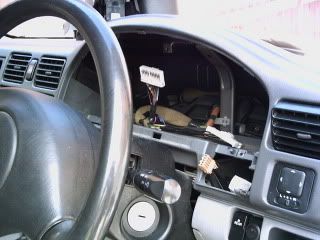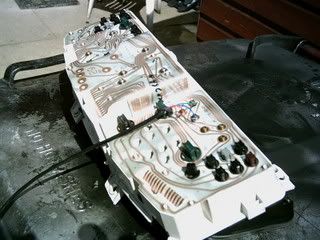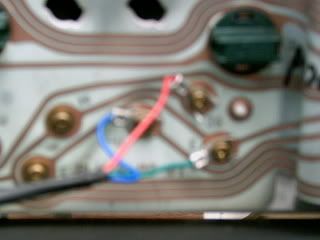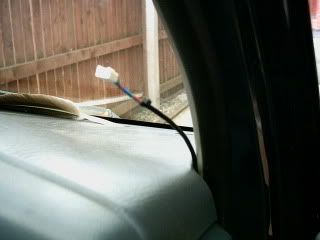Page 3 of 9
Posted: Sun Aug 12, 2007 10:02 pm
by paul9
Veg_Ian wrote:Paul's already offered to do the testing so we will see how he gets on.
we could both do it and compare results,mine will be fitted by end of week i hope,will post some pics of fitting procedure

Posted: Mon Aug 13, 2007 1:15 pm
by mikeonb4c
Sounds a good idea to have a 2nd tester. I'll be v interested to read the reviews.
Mike

Posted: Mon Aug 13, 2007 2:09 pm
by paul9
i have fitted cable to back of clocks,must say it is only a 5 minite job,very simple job,just waiting to order adjustable prototype alarm that just clips in to end of cable,will update asap

Posted: Mon Aug 13, 2007 3:42 pm
by paul9
Re: Interesting point about your temp gauge
Posted: Mon Aug 13, 2007 4:10 pm
by Dave Mason
haydn callow wrote:
When the bongo gauge gets to it's 11 o'clock position the actual temp of the head is about 55degs C. It then stays there and the cylinder head continues to get hotter untill it reaches about 100 degs C... All this time the bongo gauge stays at it's 11 o'clock position and does not budge.
For comparison, this (on the left) is what the gauge does in a Toyota Estima/Previa - it does not budge between 90degC and 115degC. On the right is the effect of adding a Mason alarm - makes the gauge do something useful. The temperatures are of the tip of the sensor - removed from the head and immersed in heated oil for testing. They are superimposed over these pictures, not actually marked on the dial.
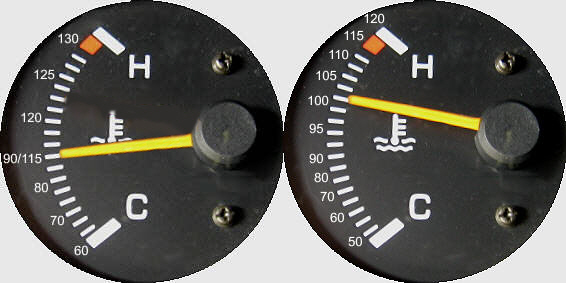
Posted: Mon Aug 13, 2007 5:46 pm
by mikeonb4c
Wouldnt it be nice if we could put neat figures on the temp gauge though. Anyone think of a way it could be done??
Posted: Mon Aug 13, 2007 6:19 pm
by Dave Mason
mikeonb4c wrote:Wouldnt it be nice if we could put neat figures on the temp gauge though. Anyone think of a way it could be done??
The above calibration image has prompted the same suggestion just the other day from an Estima owner. You can get a batch of small vinyl labels for about £50 but it takes a lot of work to get the design exactly right. At least Estima temp gauges start with some lines on them. Bongo ones are blank aren't they - so perhaps more case for a stick-on dial face. If you want an approx temp calibration then someone first has to do some careful tests.
Posted: Mon Aug 13, 2007 7:58 pm
by corblimey
I have some Avery clear inkjet address labels take can easily be printed with whatever design you care to knock up in photoshop or illustrator, etc.
The only slight fly in the ointment is that fact that you can't print white! I guess you could paint a masked area of the dial white first before you stuck your label on but I'm not sure how satisfactory a look you'd get.
Posted: Mon Aug 13, 2007 9:54 pm
by mikeonb4c
And as Dave says, there is the calibration issue. Mind you, its not so much that you want to know the absolute temp., just a number to remember as being the max you notice it reaches when healthy but working under different loads. You can then go 'thats odd' if/when it rises beyond that number. If you follow me! Keep those thinking caps on

Posted: Mon Aug 13, 2007 10:22 pm
by Dave Mason
mikeonb4c wrote:its not so much that you want to know the absolute temp., just a number to remember as being the max you notice it reaches when healthy but working under different loads. You can then go 'thats odd' if/when it rises beyond that number.
Exactly. A company called Hollographics did a good job producing gold on clear labels for the front of my alarms. They have a website. In order to design such a sticker, someone has to get inside the instrument panel and make an accurate sketch of the Bongo dial and the positions the pointer can take. No point buying a batch of labels unless they'll do a reasonably good job. Even if I could do this I wouldn't want to - one of you Bongo owners will need to run with it - but so far we don't even know if I can make a Mason alarm work in a Bongo.
Posted: Mon Aug 13, 2007 11:15 pm
by dandywarhol
There's a lot of good work going on here between the Mason device, HC's Aus conversion and the bolt -on sensor that Clogger has. HC and Bonza have to be commended in my opinion for allowing their vans to overheat/loose water/possibly airlock etc. in their exhaustive testing. This Mason device also looks good.
What people fail to realise and accept is that a gauge is just that - it gauges the temperature/fuel etc. - it's not an accurate piece of equipment and as Cogger has found out, the engine temperature actually varies considerably even thouth the gauge doesn't move!
I was lucky with a badly swollen hose recently (ooh err missus) and need to think seriously about getting some device to pre warn of any problems, other than the gauge.
Watching this and other threads with interest...................
Posted: Mon Aug 13, 2007 11:22 pm
by mikeonb4c
Praise indeed from dandy there. I too am enjoying this thread enormously. I'm becoming a temp gauge fetishist. V pleased if HC is selling kits. Its that old fashioned thing called enterprise.
Another area that would interest me greatly is an array of parking sensors that would reduce risk of rear end damage on a Bongo, including the pillars. I've clouted mine twice and I've seen a few with rear pillar damage. And I live in fear of demolishing a Lotus 7 parked behind me when I reverse. Its a Bongo weakness (worker and his tools?). But woops- I'm way off thread!
Mike

Posted: Mon Aug 13, 2007 11:56 pm
by corblimey
What people fail to realise and accept is that a gauge is just that - it gauges the temperature/fuel etc. - it's not an accurate piece of equipment and as Cogger has found out, the engine temperature actually varies considerably even thouth the gauge doesn't move!
I always assumed that is why vehicle temp gauges are fairly static at operating temp. As you say Dandy "Operating" can be a fairly wide range. If temp gauges were more dynamic then it would probably worry too many drivers unnecessarily. Unfortunately, in the case of the Bongo the gauge is too static and hence does not provide the necessary feedback in the event of impending doom

Oh and refering back to my bright idea out clear stickers and not being able to produce white.... perhaps it would be simpler to print on a white sticker in the first place. Doh!
Posted: Tue Aug 14, 2007 6:50 am
by clogger
had it up to 114c at the weekend
was stopping a micra overtaking me up the big hill towards saddleworth moor on the m62 so was giving it a bit of welly

normally hits 110c on that stretch went beep for a while but cooled down quickly enough and i still beat the micra home

childish i know but what the hell again the bongos temp guage did`nt flinch

Posted: Tue Aug 14, 2007 7:42 am
by Veg_Ian
The beauty of the Mason alarm is that it recalibrates the original guage to remove the "deadspot". On the Bongo this is from 11 o clock upwards. You would only normally see it go above this point if the coolant overheats and by then it is probably too late, the engine is cooked. It also has an adjustable alarm. On my Townace you could see the gauge start to rise from startup and settle at about the 3/4 point on the gauge when warmed up. If labouring up hills then it would show a rise up towards red and back off again when cooling down. By setting the alarm to go off just as it went into the red, you had an early warning of when potential trouble was imminent. You could then monitor it closely and pull over if necessary before it overheated. Townaces suffer from overheating more than the Bongo and so was a very useful aid.
Of course the gauge only gives a relative guide to what is normal and abnormal. For general conditions this is acceptable and all you really need to know. If you want to know absolute temperatures then you could fit a Durite gauge which measures the temperature of the passing coolant and fit it instead of or in addition to the normal gauge. Personally I'm not sure what value this adds for the general motorist but it is another option. Also consider, Dave sells his alarms for under 30 quid. The Durite is more than double that.
